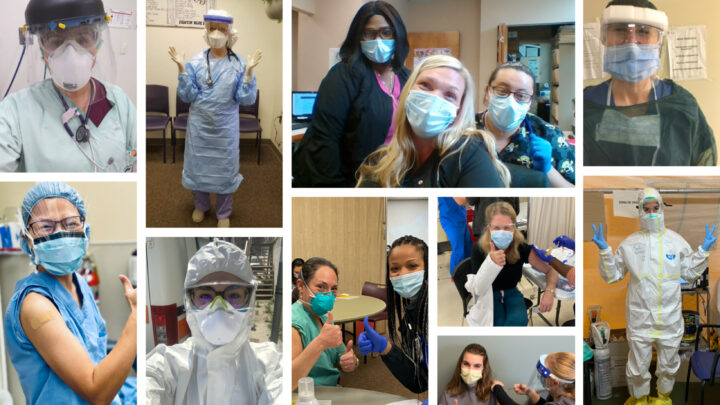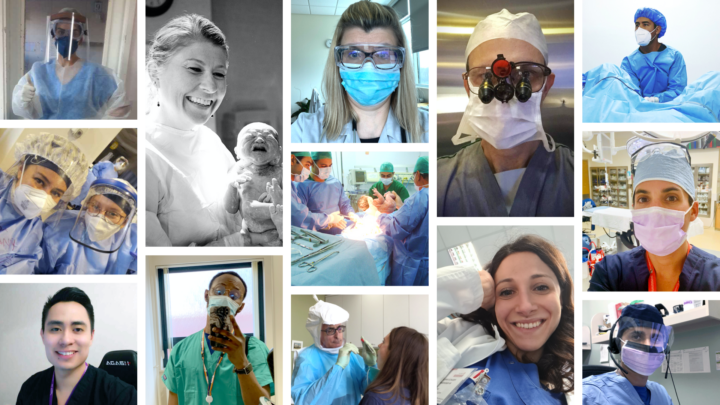
In 2026, just 33% of Oncologists on Sermo say they’re satisfied with their salary. More than half, 54%, are not, and a further 13% are only somewhat content. 1
What does that say about the state of compensation in Oncology today? What do Oncologists actually earn across different specialisms? And how much of a driving force is salary when it comes to choosing, or staying in, the profession? These are just some of the questions doctors are exploring across the United States and beyond, both in hospital corridors and on professional forums like Sermo.
With demand rising, costs varying by region and burnout on the rise, it’s more important than ever to understand what Oncologists are really earning and why it matters. In this article, we’ll break down salary data by specialism and location and explore the reality of physician compensation.
What is the average salary for an Oncologist in 2026?
Oncology continues to rank among the highest-paid medical specialties.
According to data from SalaryExpert and Weatherby Healthcare, the average salary for a medical Oncologist in the U.S. in 2024 was $464,000, a figure that has remained largely stable after a significant 13% jump the previous year. That still puts Oncologists well above the average U.S. specialist salary of $394,000, but it also signals a possible plateau. 2 3
Across the globe, average salaries for Oncologists vary widely. In Australia, Oncologists earn around $260,488 (USD equivalent), while in Canada, the equivalent is approximately $239,768. UK Oncologists average $140,250, and those in France and Austria earn just over $200,000 USD per year. At the other end of the scale, Oncologists in Argentina earn around $27,943 USD, while those in Brazil earn an average of $74,278 USD annually.2
What are the highest-paying oncology specialisms?
Within Oncology, the specialism makes a big difference. In the U.S.:
- A Radiation Oncologist salary is around $472,000. 4
- A Pediatric Oncologist salary is typically $300,000-$350,000, depending on experience.4
- A Surgical Oncologist salary tends to be upwards of $412,907. 5
- The salary of a Hematologist Oncologist falls around the $450,000 range.4
These variations reflect not only training and subspecialty demand but also location, workload and institutional funding. One Oncologist on Sermo shared, “The annual salary in my specialty, in my country, considering all the work I have to do on a daily basis should be twice or three times my current salary, 6” highlighting the international gaps in both pay and perceived fairness.
What are Oncology salaries by State?
In the United States, Oncologist salaries vary dramatically by region.
Data from Medscape and SalaryExpert shows that states like South Dakota, New Hampshire and North Dakota often offer higher-than-average compensation, sometimes exceeding $500,000 as a result of both demand and rural workforce shortages.2, 7
In contrast, Oncologists in states with a high concentration of medical professionals, such as California or New York, may see lower average base salaries when adjusted for cost of living.2,7
This state-level disparity is pushing many physicians to consider relocation. According to a Sermo poll, 24% of Oncologists said they would “absolutely” consider relocating for higher pay, while another 41% said they might, if the increase were substantial.1
However, 35% said that location stability was more important than salary bumps,1 suggesting that the personal and professional networks built in an area can be hard to leave behind in search of increased pay.
Ultimately, regional salary gaps in the U.S. are so significant that two-thirds of Oncologists would consider relocating for higher pay, but ties to local life still hold many back.1
Are Oncologists satisfied with their salaries?
Even with some of the highest earnings in medicine, many Oncologists feel their compensation doesn’t match the reality of their work.
In a recent Sermo poll, the split between Oncologists who feel at least somewhat satisfied with their current salaries vs. those who feel dissatisfied is 46% vs. 53%.1 That echoes findings from Weatherby Healthcare, where only 60% of Oncologists said they felt fairly paid relative to their workload.3
So what’s driving this disconnect?
What factors influence Oncologists’ salary satisfaction?
According to Sermo members, the issue isn’t so much the number on their paycheck as much as how that number fits into a broader picture of professional and personal wellbeing.
These were the top five factors influencing salary satisfaction, according to the poll:
- Work-life balance (32%): Many Oncologists face emotionally taxing cases and long hours. If a high salary comes at the cost of time with family or rest, it can start to feel like a poor trade-off.1
- Workload and job demands (23%): Oncology is intellectually and emotionally intense, often using new technologies or clinical trials. When workloads feel overwhelming, even generous salaries may not seem like enough compensation.1
- Regional cost of living (20%): A six-figure salary stretches much further in some regions than others. Oncologists practicing in high-cost areas may find their pay doesn’t go as far as expected.1
- Opportunities for career advancement (13%): Stagnant roles with limited upward mobility can diminish the perceived value of a salary, especially for mid-career physicians.1
- Compensation compared to other specialties (12%): Oncologists are increasingly aware of how their salaries compare to peers in other high-demand fields. This comparison can fuel dissatisfaction if the perceived gap is wide.1
Specialism and seniority also influence pay, of course. However, it seems it’s the more subjective and personal factors, like lifestyle and stress, that ultimately shape how fair a salary feels.
Why do Oncologists stay in the field despite unsatisfactory pay?
Many Oncologists remain in the profession even if they feel underpaid — suggesting that compensation isn’t their primary motivation.
Only 6% of Sermo members said salary was the main reason they continue working in oncology,¹ and just 16% of respondents in the Weatherby study said it was a major factor in their original decision to pursue the field.³
This points to a workforce driven more by purpose, impact, or intellectual challenge than by financial reward.
According to the Sermo community, what really keeps Oncologists in their roles is the following:
- 37% stay for the impact they have on patients
- 31% say it’s about personal job satisfaction
- 27% cite work-life balance
- And just 6% rank salary as their main reason for staying1
It seems that most Oncologists stay in their roles more because of the meaning they get from their work, and less because of the money they receive.
However, that’s not to say that salary doesn’t matter. As demand for their specialism grows, the gap between how much work they’re expected to do and the pay they get in return may need to be reconsidered in order to retain the best talent.
Are Oncology salaries increasing in 2026?
Since 2023, the major trend in Oncology salaries hasn’t been dramatic increases, but rather “stagnation”, according to Weatherby Healthcare.3
The boom seen in prior years, likely due to pandemic backlogs and an increased need for cancer specialists worldwide, appears to be leveling out. In 2023, the salary growth rate dropped from 13% to just 1%.3
Still, there’s more to compensation than base pay. In research conducted by Weatherby Healthcare, nearly 38% of Oncologists are taking on supplemental work to boost their income. Among these, 23% take on medical-related roles, such as consulting or advisory board positions. 6% moonlight and 4% do non-medical work on the side.3
Locum tenens roles also offer flexible ways to earn more, particularly appealing to semi-retired physicians or those seeking schedule control. As one Oncologist told Weatherby: “I thought I was effective in helping folks with cancer, and when I retired, I decided that I’d like to continue with it [through locums].3”
Your takeaway
While Oncology salaries remain strong in 2026, the picture is far from simple. Average pay has plateaued. Satisfaction is mixed. And many Oncologists are supplementing their income, not necessarily to chase wealth, but to reach a sense of fairness.
Yet, the choice to stay in oncology remains deeply personal. It’s driven more by patient impact, fulfillment and identity than by salary surveys. Still, understanding where your compensation stands is essential, especially for those exploring new regions, roles, or supplemental work.
Footnotes
- Sermo (2026) Poll of the Week: Insights on Oncology Compensation. Available at: https://app.sermo.com/feed/for-you/post/1376810/expanded (Accessed: 26 June 2025).
- SalaryExpert (n.d.) Oncologist salaries by country. Available at: https://www.salaryexpert.com/salary/browse/countries/oncologist (Accessed: 26 June 2025).
- Weatherby Healthcare (2023) Medical Oncologist Salary Report. Available at: https://weatherbyhealthcare.com/blog/medical-oncologist-salary (Accessed: 26 June 2025).
- AMN Healthcare (2025) Oncologist salary and specialties in locum tenens and permanent roles. Available at: https://www.amnhealthcare.com/blog/physician/locums/oncologist-salary-and-specialties/ (Accessed: 26 June 2025).
- Resolve (n.d.) Physician salaries for hematology/oncology. Available at: https://www.resolve.com/the-data/physician-salaries-for-hematology-oncology?specialty=Surgery:%20Oncology (Accessed: 26 June 2025).
- Sermo member comment on: Sermo (2025) Poll of the Week: Insights on Oncology Compensation. Available at: https://app.sermo.com/feed/for-you/post/1376810/expanded (Accessed: 26 June 2025).
- Medscape (n.d.) Physician Salary Explorer: Oncology – New York, NY. Available at: https://www.medscape.com/physician-salary-explorer?specialty=Oncology&city=New%20York&state=NY&dma=New_York®ion=Mid%20Atlantic&yoe=15%2C21&emp= (Accessed: 26 June 2025).















